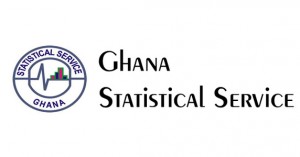Nabdam is district with highest multidimensional poverty in Ghana
 The Ghana Statistical Service (GSS) has ranked the Nabdam district of the Upper East Region as the area with the highest multidimensional poverty in the country.
The Ghana Statistical Service (GSS) has ranked the Nabdam district of the Upper East Region as the area with the highest multidimensional poverty in the country.
Latest scorecards on multidimensional poverty for all 261 districts in Ghana released by the Ghana Statistical Service as part of activities to mark the 2023 African Statistics Day showed that the district had a score of 68 per cent, which is 11 times higher than the lowest score of 6.3 per cent recorded in Asokwa Municipality of the Ashanti Region.
The multidimensional poverty indicator is a non-monetary deprivation measure that comprises 13 indicators in four dimensions.
It includes living conditions, thus, electricity, housing, assets, overcrowding, cooking fuel, water, and toilet facility); education (attendance, attainment, and school lag), health (insurance coverage and mortality), and employment (work for wage or profit).
In a statement, GSS noted that the incidence of multidimensional poverty in 23 districts was higher than 50 per cent, which was more than twice the national rate of 24.3 percent.
It also indicated that in 55 of the districts with both rural and urban residential settlements, there was at least a 20.0 percentage point difference in the incidence of multidimensional poverty, with the highest disparity of 38 percentage points in Kwahu, Afram Plains North.
Moreover, in nine out of every 10 districts, multidimensional poverty is higher for female headed households compared to male-headed households.
“The principal contributor to multidimensional poverty across districts is employment (206 districts) and insurance coverage (55 districts). Employment contributes between 22.9 percent and 56.7 percent across the 206 districts, while insurance coverage contributes between 23.5 percent and 29.7 percent across the 55 districts,” the statement said.
The district scorecards relied on the 2021 Population and Housing Census as a data source, it provides statistics on the proportion of the population within the district that lives in multidimensionally poor households, experiencing multidimensional poverty, and the ranking of the district relative to other districts in the region and to all districts in the country.
It also presents information on the areas in which poor people in the district are most deprived.
Source: GNA
